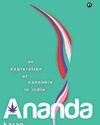Tim Urban analyzes the reasons for chronic tardiness

My friend Andrew recently sent me a link to a story titled ‘Optimistic People All Have One Thing in Common: They’re Always Late’.
Intriguing. Nothing’s better than the headline ‘The Reason People Are [bad quality that describes you] Is Actually Because They’re [good quality]’. I got to reading. And it turns out late people are actually the best people ever. They’re optimistic and hopeful:
“They believe they can fit more tasks into a limited amount of time than other people and thrive when they’re multitasking. Simply put, they’re fundamentally hopeful.”
They think big:
“People who are habitually late don’t sweat the small stuff; they concentrate on the big picture and see the future as full of infinite possibilities.”
Late people just get it:
“People with a tendency for tardiness like to stop and smell the roses … Life was never meant to be planned down to the last detail. That signifies an inability to enjoy the moment.”
By the end of the article, I had never felt prouder to be a chronically late person.
But wait … Late people are the worst. It’s the quality I like least in myself. And I’m not late because I like to smell the roses or because I can see the big picture or because the future is full of infinite possibilities.
I’m late because I’m insane.
The issue is that there are two kinds of lateness:
1) OK lateness. This is when the late person being late does not negatively affect anyone else—like being late to a group hangout or a party. Things can start on time and proceed as normal with or without the late person.
هذه القصة مأخوذة من طبعة July 2016 من Reader's Digest India.
ابدأ النسخة التجريبية المجانية من Magzter GOLD لمدة 7 أيام للوصول إلى آلاف القصص المتميزة المنسقة وأكثر من 9,000 مجلة وصحيفة.
بالفعل مشترك ? تسجيل الدخول
هذه القصة مأخوذة من طبعة July 2016 من Reader's Digest India.
ابدأ النسخة التجريبية المجانية من Magzter GOLD لمدة 7 أيام للوصول إلى آلاف القصص المتميزة المنسقة وأكثر من 9,000 مجلة وصحيفة.
بالفعل مشترك? تسجيل الدخول

ME & MY SHELF
Siddharth Kapila is a lawyer turned writer whose writing has focussed on issues surrounding Hinduism. His debut book, Tripping Down the Ganga: A Son's Exploration of Faith (Speaking Tiger) traces his seven-year-long journey along India's holiest river and his explorations into the nature of faith among believers and skeptics alike.

EMBEDDED FROM NPR
For all its flaws and shortcomings, some of which have come under the spotlight in recent years, NPR makes some of the best hardcore journalistic podcasts ever.

ANURAG MINUS VERMA PODCAST
Interview podcasts live and die not just on the strengths of the interviewer but also the range of participating guests.

WE'RE NOT KIDDING WITH MEHDI & FRIENDS
Since his exit from MSNBC, star anchor and journalist Mehdi Hasan has gone on to found Zeteo, an all-new media startup focussing on both news and analysis.

Ananda: An Exploration of Cannabis in India by Karan Madhok (Aleph)
Karan Madhok's Ananda is a lively, three-dimensional exploration of India's past and present relationship with cannabis.

I'll Have it Here: Poems by Jeet Thayil, (Fourth Estate)
For over three decades now, Jeet Thayil has been one of India's pre-eminent Englishlanguage poets.

Orbital by Samantha Harvey (Penguin Random House India)
Samantha Harvey became the latest winner of the Booker Prize last month for Orbital, a short, sharp shock of a novel about a group of astronauts aboard the International Space Station for a long-term mission.

She Defied All the Odds
When doctors told the McCoombes that spina bifida would severely limit their daughter's life, they refused to listen. So did the little girl

DO YOU DARE?
Two Danish businesswomen want us to start eating insects. It's good for the environment, but can consumers get over the yuck factor?

Searching for Santa Claus
Santa lives at the North Pole, right? Don't say that to the people of Rovaniemi in northern Finland